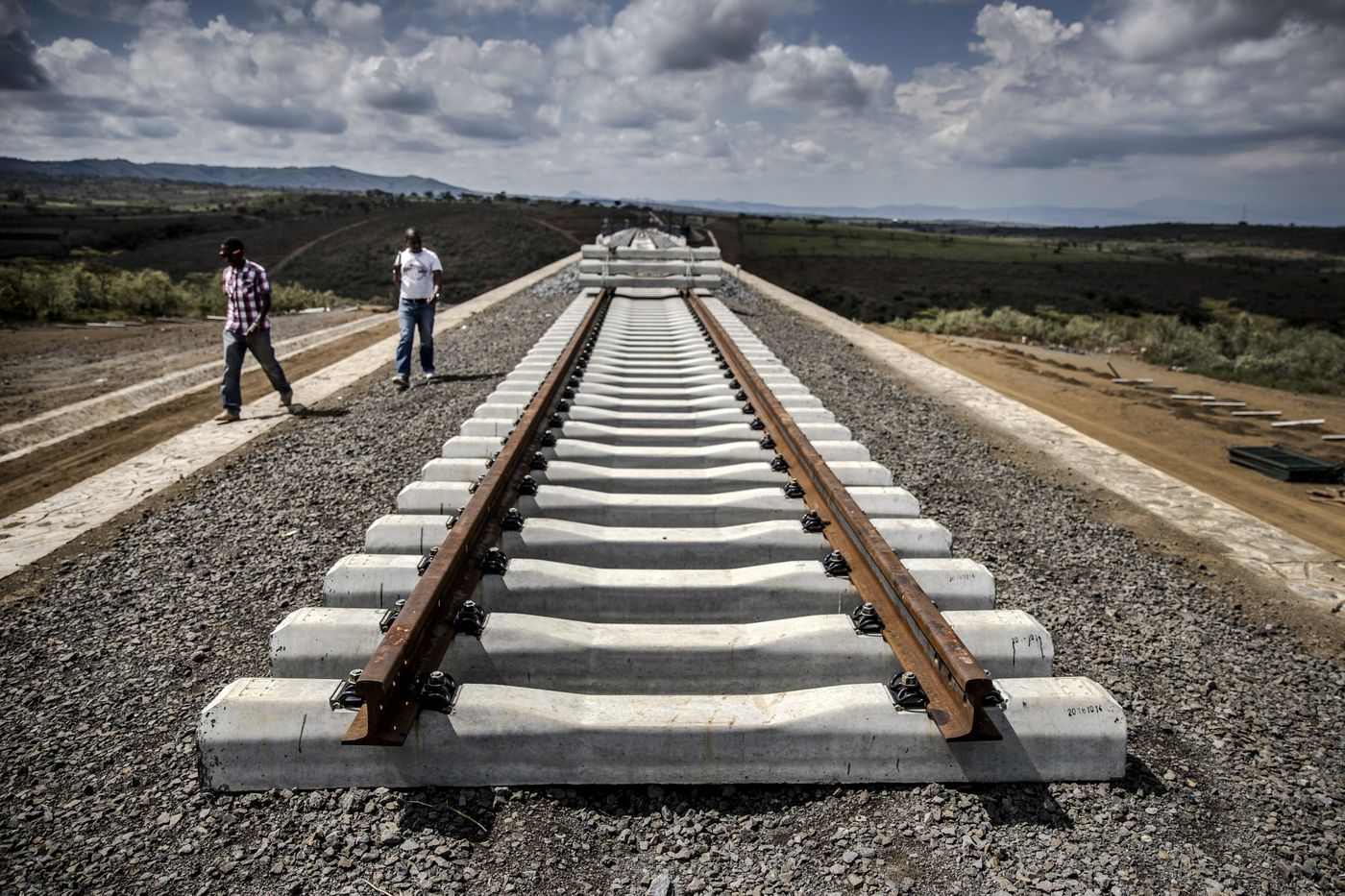Beijing is withholding the $4.9 billion needed to finish the project, once a flagship for Xi Jinping’s Belt and Road initiative.
Gleaming concrete sleepers run across a new railway bridge in Kenya, the latest stretch of a Chinese-built line from the coast all the way to Uganda.
Only, it doesn’t quite reach the border. Instead, the railroad ends abruptly by a sleepy village about 75 miles west of the Kenyan capital, Nairobi, the tracks laid but unused.
Construction of what was intended to be a flagship infrastructure project for Eastern Africa was halted earlier this year after China withheld some $4.9 billion in funding needed to allow the line’s completion. Beijing’s sudden financial reticence appeared to catch the governments of Kenya and Uganda off guard: Both may now be forced to reinstate a colonial-era line in a bid to patch the link and boost regional trade.
Kenya’s Railway to Nowhere
Construction of a Chinese-built line across East Africa has halted
The reason for China’s attack of cold feet may lie in the project’s high profile. Chinese state media repeatedly used the Mombasa-Nairobi Standard Gauge Railway (SGR) project as a showcase for President Xi Jinping’s Belt and Road Initiative. But with concerns rising globally that Belt and Road was loading poorer nations with unsustainable debt, Xi signaled in April that Beijing would exert more control over projects and tighten oversight.
That extra rigor is beginning to be felt worldwide. A planned light-railway system that was the most high profile belt and road project in Kazakhstan is on hold after the collapse of a local bank that handled Chinese funds. In Zimbabwe, a giant solar project hit a funding shortfall after the Export Import Bank of China backed out of providing financing due to the Zimbabwean government’s legacy debts, RWR Belt and Road Monitor reported this month. Kenya’s line may be next.
The Chinese “are adopting a more cautious approach to their debt exposure in Africa,” said Piers Dawson, a consultant at London-based investment consultancy Africa Matters Ltd. He cites “increased noise around its sustainability and potential default.”
China is now the single largest financier for infrastructure in Africa, funding one-in-five projects and constructing every third one, according to a Deloitte report. With infrastructure needs that the African Development Bank estimates at $130 billion to $170 billion yearly, governments are only too willing to take out Chinese loans to plug the funding gap.
The downside is that Kenya was one of three African countries identified in a March 2018 report by the Washington-based Center for Global Development as at risk of debt distress as a result of its Belt and Road participation. The others were Egypt and Ethiopia.
“China has its own issues it’s dealing with, including perceptions that it is ‘trapping’ many of its Belt and Road partners by drowning them in debt,” said Jacques Nel, an economist at NKC African Economics. China’s government has “put the brakes on its external expansion plans, or has at least become more focused on the viability of projects due to its own corporate debt concerns,” he said.
The first half of the Kenya-Uganda railway, a 470-kilometer (290-mile) stretch between the port city of Mombasa and Nairobi, is operational but not yet making money. Beijing balked at funding the extension to Uganda amid concerns it may be a step too far beyond viability.
“China has its own issues it’s dealing with, including perceptions that it is ‘trapping’ many of its Belt and Road partners by drowning them in debt,” said Jacques Nel, an economist at NKC African Economics. China’s government has “put the brakes on its external expansion plans, or has at least become more focused on the viability of projects due to its own corporate debt concerns,” he said.
The first half of the Kenya-Uganda railway, a 470-kilometer (290-mile) stretch between the port city of Mombasa and Nairobi, is operational but not yet making money. Beijing balked at funding the extension to Uganda amid concerns it may be a step too far beyond viability.
Source: Bloomberg

